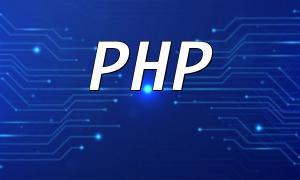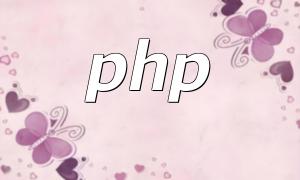In modern web development, JSON (JavaScript Object Notation) has become the mainstream format for data exchange. When working with JSON data in PHP, data filtering is a key step to ensure both application security and performance. This article introduces some tips for filtering JSON data in PHP to optimize your code and enhance application security.
Before working with JSON data, it's important to understand its basic structure. JSON data typically consists of key-value pairs, where keys are strings and values can be strings, numbers, arrays, objects, or booleans. By specifying the expected format of the data, we can effectively filter the data.
In PHP, we can use the json_encode and json_decode functions to handle JSON data. These two functions allow us to easily convert PHP arrays into JSON format or convert JSON formatted data back into PHP arrays.
$data = array('name' => 'John', 'age' => 30);
$json_data = json_encode($data);
$array_data = json_decode($json_data, true);
With these functions, developers can easily perform data conversion between PHP and JSON.
Filtering incoming JSON data is essential. By ensuring that the data we receive is valid and secure, we can effectively prevent SQL injection and cross-site scripting (XSS) attacks.
When handling JSON data, PHP's built-in functions such as filter_var and filter_input can help us perform effective data validation and filtering.
$name = filter_var($array_data['name'], FILTER_SANITIZE_STRING);
$age = filter_var($array_data['age'], FILTER_VALIDATE_INT);
Using these functions, we ensure that the data we receive is valid and matches the expected format.
Sometimes, the standard filters may not meet specific requirements. In these cases, you can create custom filters. By writing your own validation functions, you can tailor the filtering process to your business logic.
function custom_filter($data) {
// Custom filtering logic
return htmlspecialchars(strip_tags($data));
}
$filtered_name = custom_filter($array_data['name']);
With custom filters, you can apply more detailed processing according to your specific needs.
When parsing and processing JSON data, various errors may arise. By using json_last_error and json_last_error_msg, you can capture and handle these exceptions.
$json_data = '{"name": "John", "age":}'; // Invalid JSON format
$array_data = json_decode($json_data, true);
if (json_last_error() !== JSON_ERROR_NONE) {
echo 'JSON Error: ' . json_last_error_msg();
}
These functions help developers quickly identify and handle JSON parsing errors.
Filtering JSON data in PHP is an effective way to improve application security and performance. By using built-in functions, custom filters, and error handling, developers can ensure the validity and integrity of the data. Following these tips will enable your application to safely handle JSON data, providing a better experience for users.









